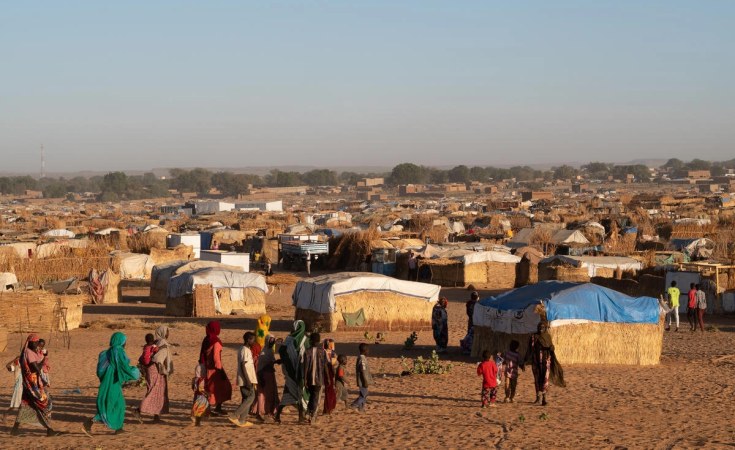The number of Sudanese refugees in South Sudan has surpassed half a million, the UN refugee agency, UNHCR, announced on Friday, as ongoing conflict in neighbouring Sudan continues to drive massive displacement.
South Sudan now ranks as the second largest recipient of people fleeing Sudan, with more than 810,000 new arrivals since April 2023, including returning South Sudanese refugees who were sheltering in Sudan and refugee and asylum seekers from other countries.
UNHCR warned that the situation is likely to worsen, exacerbating the already dire humanitarian challenges in the country.
"The conflict in Sudan is hitting South Sudan harder than any other country in the region and adds to the immense challenges the nation is facing," said Marie-Helene Verney, UNHCR Representative in South Sudan.
"UNHCR and other humanitarian actors have been on the frontline of the humanitarian response and are now calling for others to join efforts to help South Sudan integrate the hundreds of thousands who have arrived."
Rising needs amid economic strain
Over half of South Sudan's refugees are currently hosted in Maban region, with another 135,000 in the Ruweng Administrative Area. An increasing number of refugees are also settling in urban areas, presenting both opportunities and challenges for their integration into local economies and communities.
The conflict in Sudan has also severely disrupted supply routes and oil exports in South Sudan, driving inflation and straining an already fragile economy. The prices of essential goods, particularly food, have surged, further limiting resources for host communities and complicating efforts to integrate the new arrivals.
In response, UNHCR, alongside national authorities and partners, continues to provide critical support to refugees and the communities hosting them.
Efforts include meeting immediate needs like water, shelter, and medical care, as well as advocating for long-term solutions such as access to identity documents, livelihood opportunities, and integration into national health and education systems.
However, an end to the fighting in Sudan remains critical to long-term success.
"It is clear, however, that the only solution is the end of the conflict in Sudan. South Sudan is reeling from the shock and cannot continue to absorb so much suffering," said Ms. Verney.
Call for global support
UNHCR highlighted the need for additional funding to support and protect vulnerable refugees.
"While funding for South Sudan remains generous, resources to fully meet people's needs are still significantly low," it said.
With less than three months remaining in 2024, its operations in South Sudan are only 47 per cent funded, the agency said, appealing for increased donor support to meet the growing needs of both refugees and host communities.
Deadly clashes in Central Equatoria state
In a separate development, the UN Mission in South Sudan (UNMISS) expressed alarm over a series of violent clashes between armed actors in the greater Juba area of Central Equatoria state, in which at least 24 people were killed, including 19 civilians.
The incidents reportedly involved attacks and counterattacks between former members of the National Salvation Front (NAS) and occurred in the Wonduruba and Ganji areas.
"I am deeply concerned by these brutal acts and urgently call on the Government of South Sudan to conduct an immediate investigation to bring perpetrators to justice swiftly," said Nicholas Haysom, Special Representative of the Secretary-General for the country and head of UNMISS.
He stressed that protection of civilians must remain paramount and respected at all times.
"There is no justification for the extrajudicial killing of civilians. International human rights law sets down clear rules, and all parties must abide by it," he added.
In response to the violence, UNMISS has intensified patrols across Central Equatoria and is actively engaging with provincial and local authorities, as well as community leaders, to prevent further escalation and ensure the protection of civilians.


